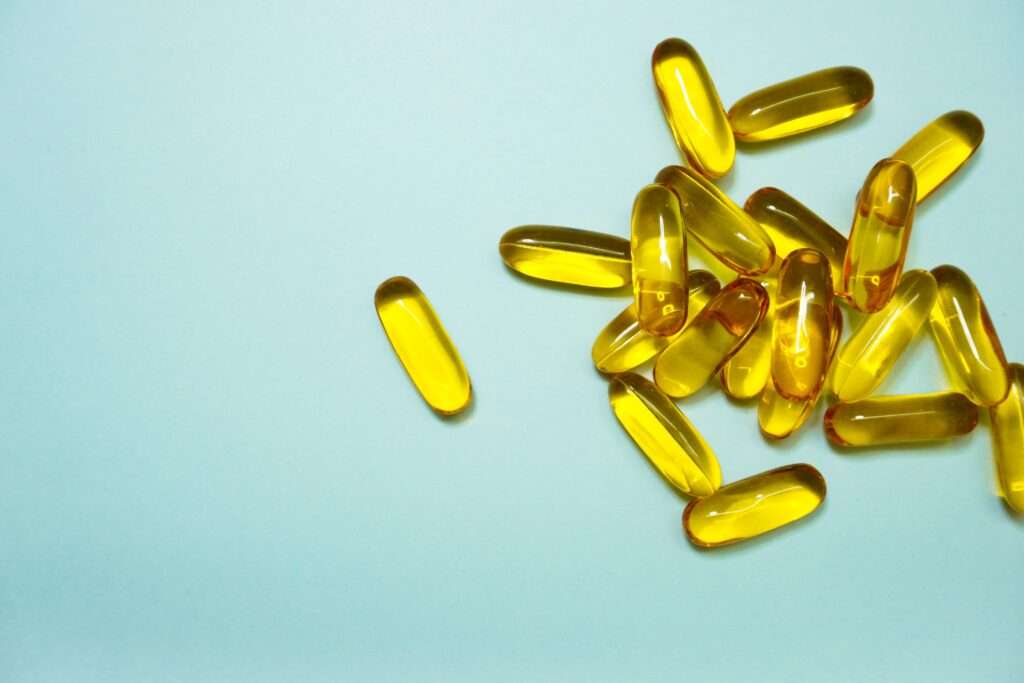SHARE TO:

There are two essential fatty acids that come to mind when discussing the average American diet. You may have heard them called, “Omega-3s.” EPA and DHA (Eicosapentaenoic acid and docosahexaenoic acid). They both have excellent anti-inflammatory properties when consumed consistently however, most Americans do not get adequate amounts from their diet alone.
Fatty fish like salmon and herring are all good sources of DHA and EPA. These essential fatty acids MUST be consumed from food or supplements as our bodies cannot make them. If you hate fish, then taking a supplement to ensure you are getting consistent, adequate amounts may be the right path for you.
A recent article from Harvard Medical School reviewed 19 different studies and found that those taking at least 2,000mg/d of fish oil found a decrease in symptoms of anxiety as compared to those not receiving it. Studies have also shown that those with a higher intake of EPA/DHA have a decreased risk of chronic disease, lower triglycerides, depression, and improved cognitive function. Yes, please!
The beneficial mechanism of higher doses of DHA/EPA has been thought to be related to the support they give to the cells in the brain. The link stems from their ability to modulate mechanisms to impact the systems that signal dopamine and serotonin. (4) Isn’t it just amazing how our body works and how when one small thing is off it can impact us on a daily basis?
There are many different tactics out there that we can explore when trying to deal with our own anxiety, depression, and the quest for mood stabilization. I would encourage you to make sure you know the research that has been done to support these areas. Consulting with a trained and trusted healthcare professional is always a good idea! The supplement world can be a scary place without the right guide!
We have been working to source a great quality fish oil supplement that has an ideal DHA/EPA combo. Check out our supplement page for more information.
Hope this helps!
Xoxo,
Jackie
Resources:
Struggling with your mental health or overwhelm? Sign up below and exclusive discounts, access to monthly wellness tips, special offers, and thoughtful content created for busy, overwhelmed women.
Just enter your first name and email below to get started—no spam, ever.
Copyright © 2022-2023 Her Resilience LLC. Jackie Meyer Nutrition – All Rights Reserved. Designed by Chloe Creative. Terms. Privacy Policy.
These statements have not been evaluated by the Food and Drug Administration. These products are not intended to diagnose, treat, cure, or prevent any disease. All content found on our website and including text, images, audio, or other formats were created for informational purposes only. The content is not intended to be a substitute for professional medical advice, diagnosis, or treatment. Always seek the advice of your physician or otherwise qualified health provider with any questions you may have regarding a medical condition. Never disregard professional medical advice or delay in seeking it because of something you have read on this website. Refunds are subject to the discretion of the team.